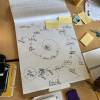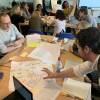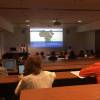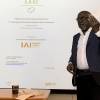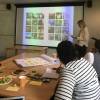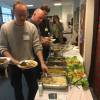Peace and Cohesion through Identity: Applications for Real-World Practice
15 July 2019
A two-day practitioner-academic workshop by the Organisation for Identity and Cultural Development and UCL Anthropology.
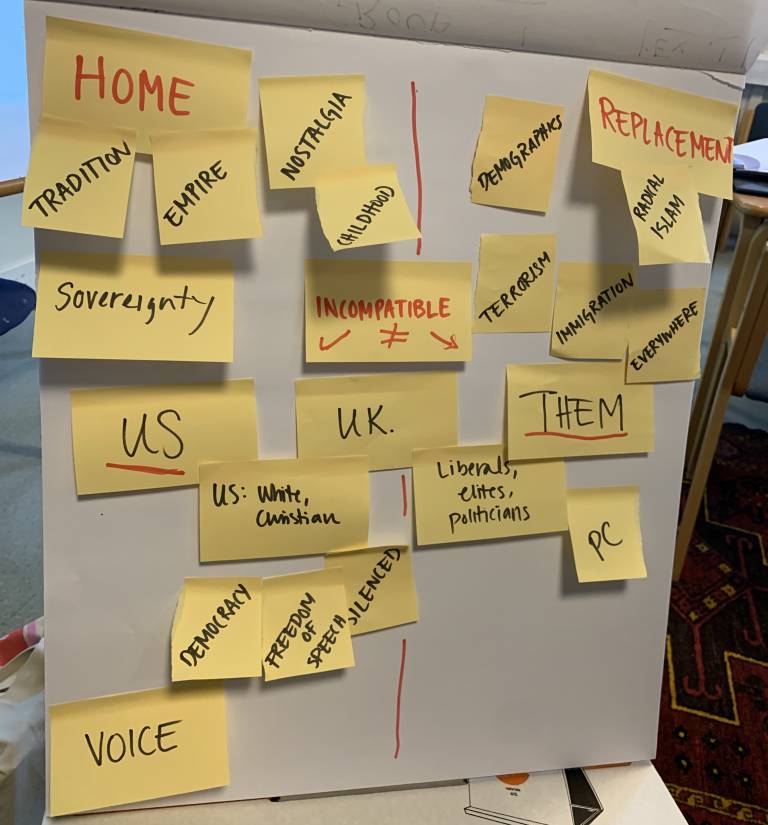
Red and black markers glide across butcher’s paper, connecting the words “us” and “them” to phrases such as “way of life,” “protect from attack,” “banish enemies,” “divine calling.” Clustered workshop participants are analysing examples of far right speech, with samples ranging from English Defence League in the present to Germany under the Nazis. Whilst the maps the workshop participants draw vary visually, from curly snails to parent/child type diagrams, there is a striking kinship: far right speeches throughout history have drawn on similar tropes and techniques to foster feelings of belonging and moral superiority within the “us” or the in-group, and to incite fear and a sense of crisis or threat from “them”, the out-group.
The above observation may seem simplistic, but continues to be incredibly effective: identity wields great power in inciting conflict and division in the world. The participants above were taking part in a two-day workshop held at UCL Anthropology on Thursday 2 and Friday 3 May, organised by Ruth Mandel (UCL Anthropology), Bruce White (Organisation for Identity and Cultural Development) and Stephen Lyon (Aga-Khan Institute). The workshop brought together over 30 practitioners, academics and artists across the UK and Europe working in the field of peace and conflict studies, to discuss how to apply the concept of identity to real-world conflict situations. In other words: how can we translate our knowledge and understanding of identity to harness its potential to create cohesion and peace rather than division?
Setting the agenda, organiser Bruce White noted that a key barrier to applying theories of identity has been the vastness of the concept across disciplines. Early in the workshop, presenter Adrienne Lemon from the NGO Search for Common Ground provided us with some useful features of identity to think with. She outlined a frequently-made dichotomy—some say identity is sticky, and it gets stickier as one gets older, i.e. it becomes resistant to change. Others say it is constructed, and therefore dynamic and adaptable. The first group exercise in the workshop was designed to mull over exactly such heterogeneous features through presenting participants with multi-coloured cards espousing different features of identity, with which they made a “hand of cards” that spoke to how they used identity in their work. Presenting their “hand” to the wider group, some key features did emerge: identity is multiple, involves an interplay between self and society, evokes emotions, and can be mobilised for different ends.
The remainder of the workshop saw participants undertaking collaborative group exercises in discourse analysis, identity mapping, and effective strategising interspersed with diverse presentations. Fuelled by delicious Ethiopian food from the catering company Woin’s Vegan World (which originated through the NGO Migrateful), participants heard from NGO practitioners such as Daniel Tucker from Conciliation Resources, speaking about Boko Haram and Nigerian youth identities; Pierre Sané (formerly Secretary-General of Amnesty International) from Imagine Africa, discussing the complex history of Senegal pre- and post-colonisation, relating this to his own personal identity; art educator John Johnston sharing his mural project in Northern Ireland bringing together Protestant and Catholic youth; and photographer Tiffany Fairey highlighting the importance of images in self-representations of identity. They were given some theoretical tools to think with through political psychologist Tereza Capelos’ Cognitive Affective Mapping (CAMs) method for mapping political emotions (using the example of the Turkish election), Sandra Obradović’s explorations of Serbian’s embodied and lived experiences of identity in relation to accession to the EU, and Siân Herbert’s conflict mapping in Nigeria and Colombia.
A take-home message from the workshop was strengthening alternative narratives and frames to combat division and build upon new cohesive collective identities. The concluding roundtable with Raj Bhari (Peaceful Change Initiative), Gwenn Laine (ARK Group), Norunn Grande (Nansen Center for Peace and Dialogue) and Nino Kemoklidze (University of Birmingham) provided a sense of momentum to build upon the diverse perspectives heard over the two days and collaborate moving forward. A key point was who was not in the room: the importance of involving policymakers, educators and employers. Another question was how to develop real-world tools: a practitioner toolkit was discussed as an effective way to translate conceptual insights into practical situations, and partnerships with NGOs so that evaluations and feedback from conflict situations on the ground could continue to be fed back to academics working on topics of identity.
 Close
Close


